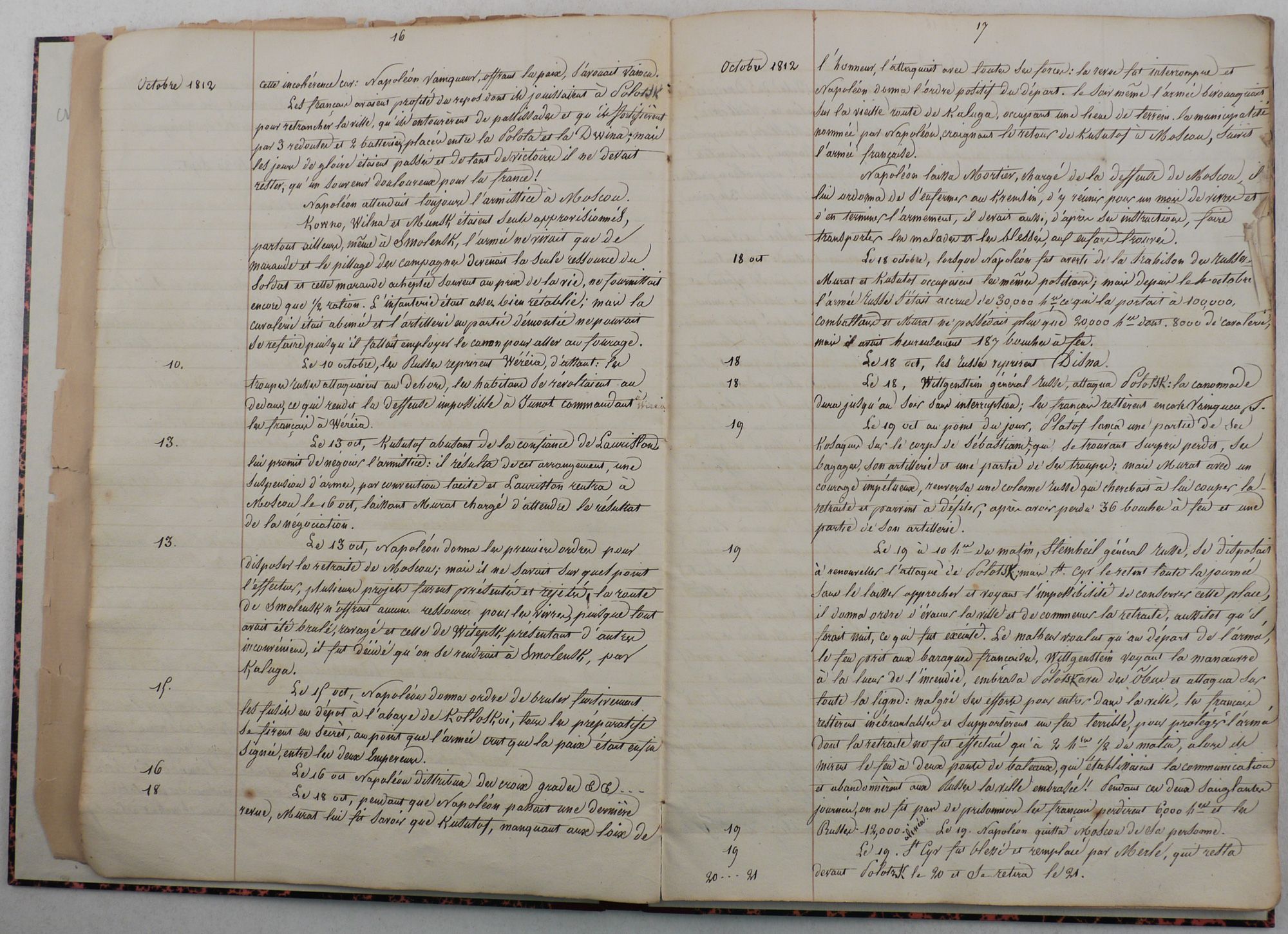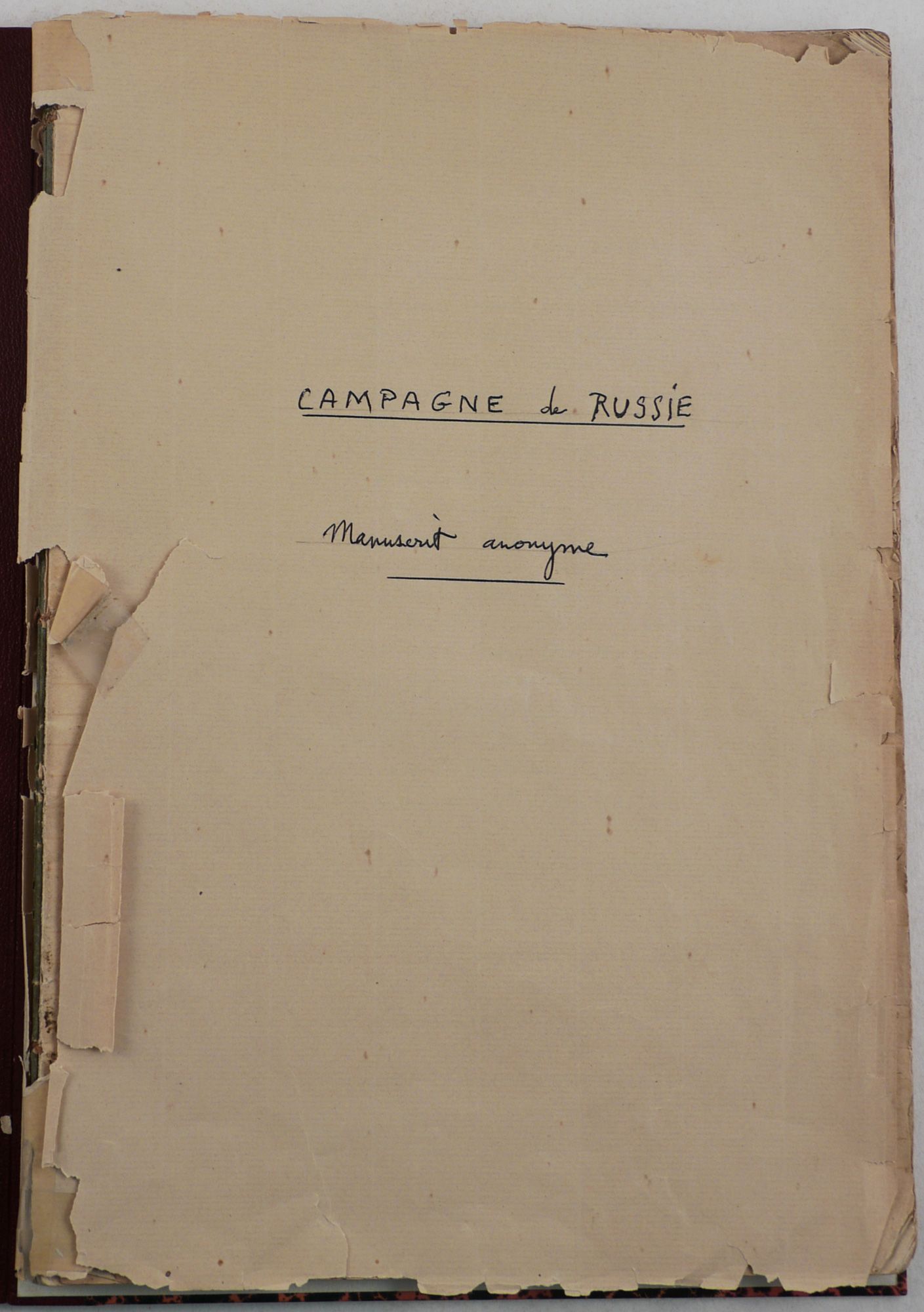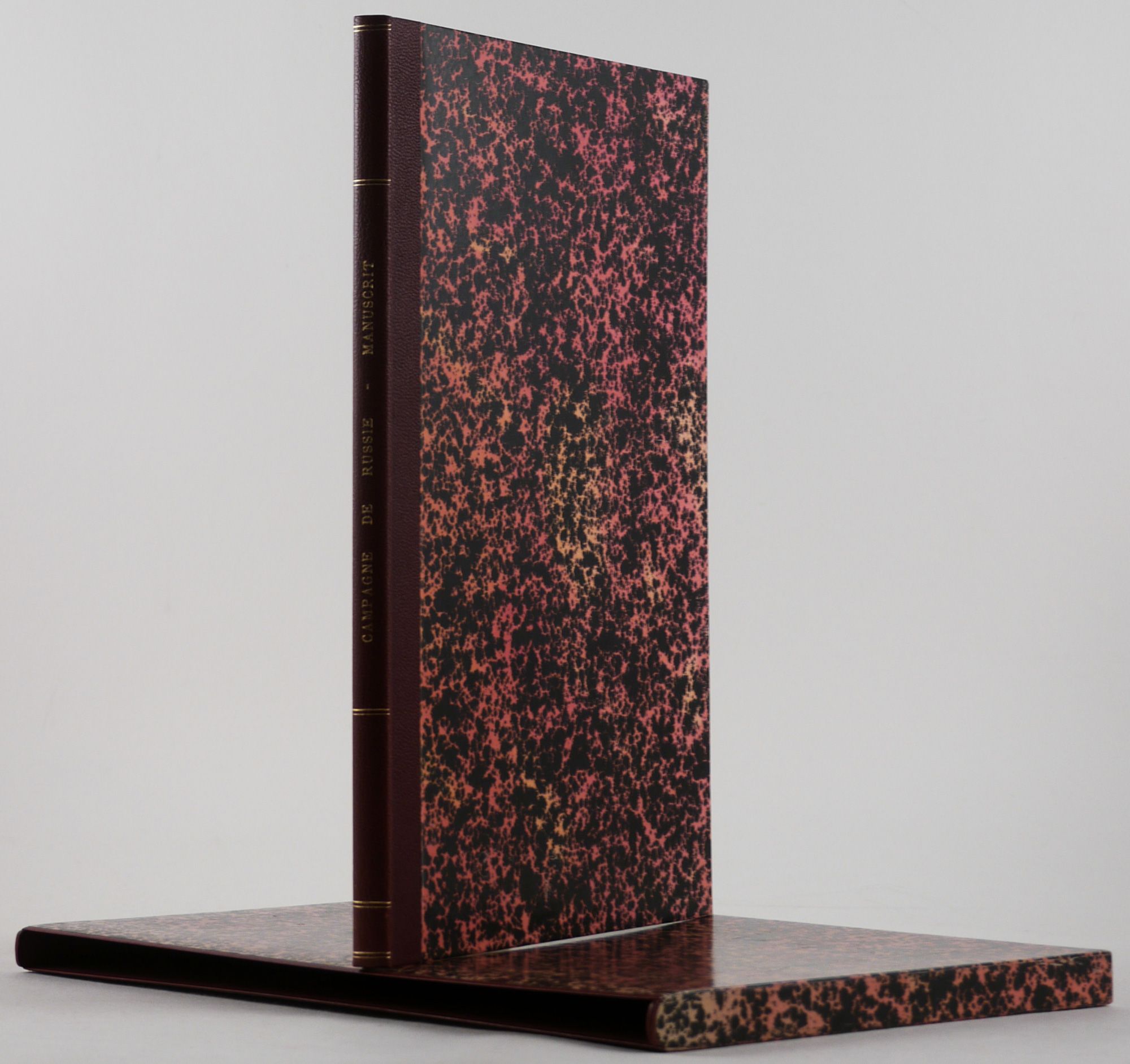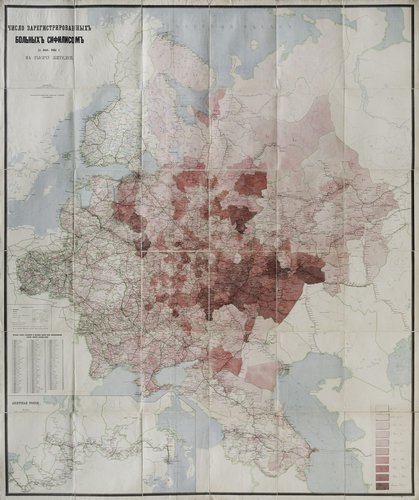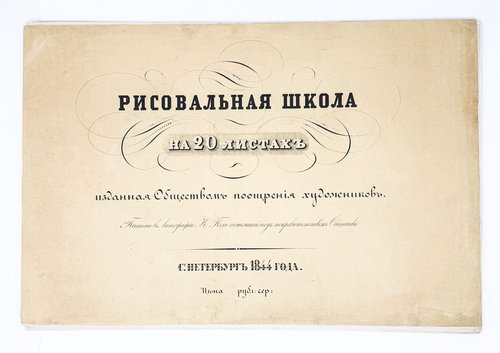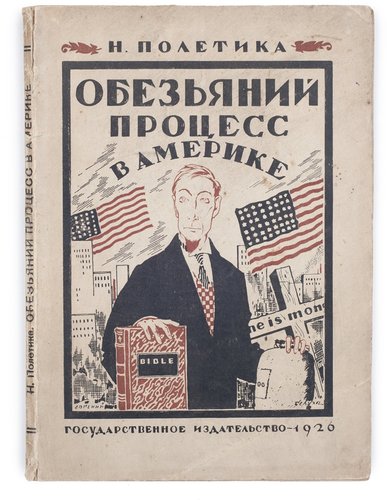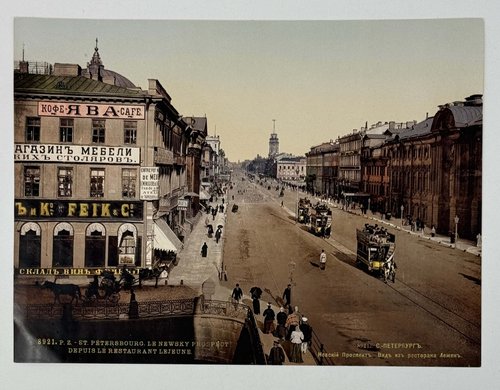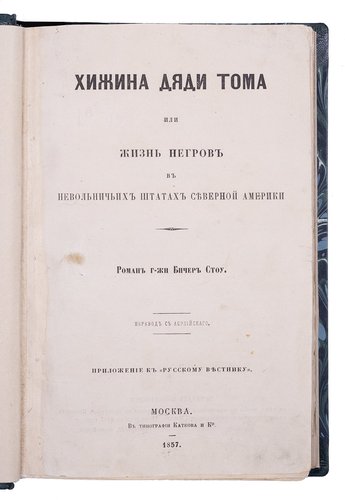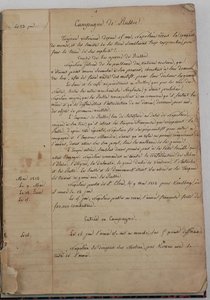
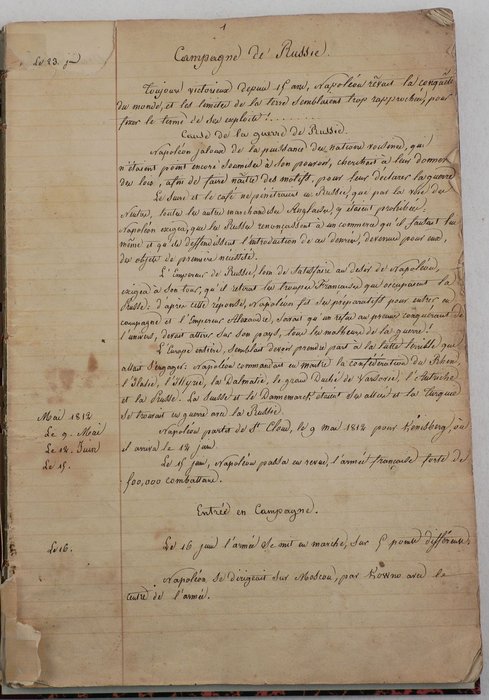
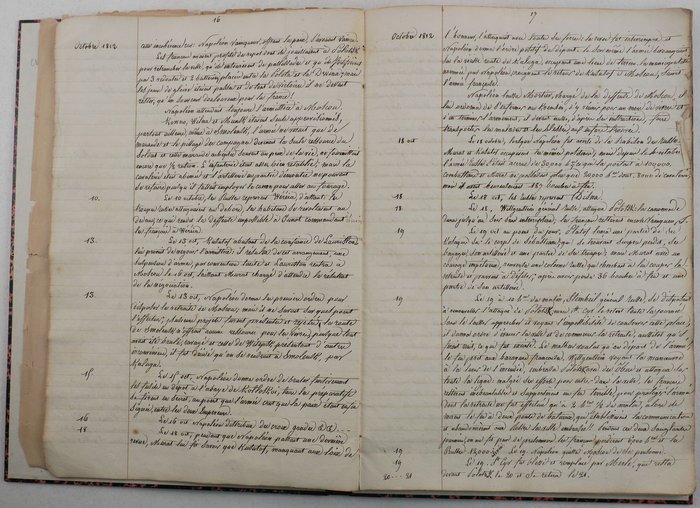
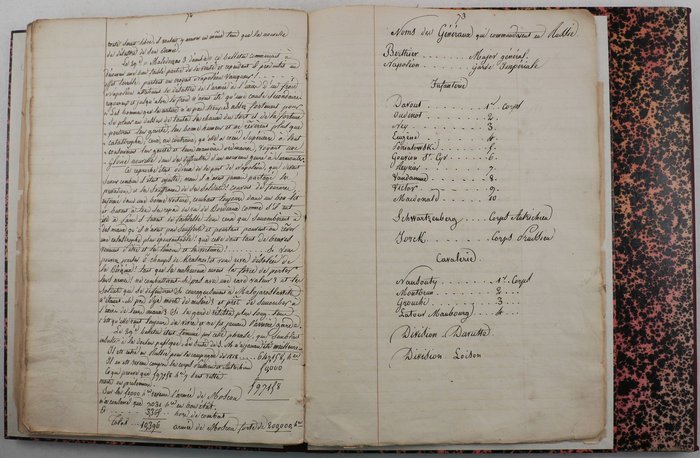
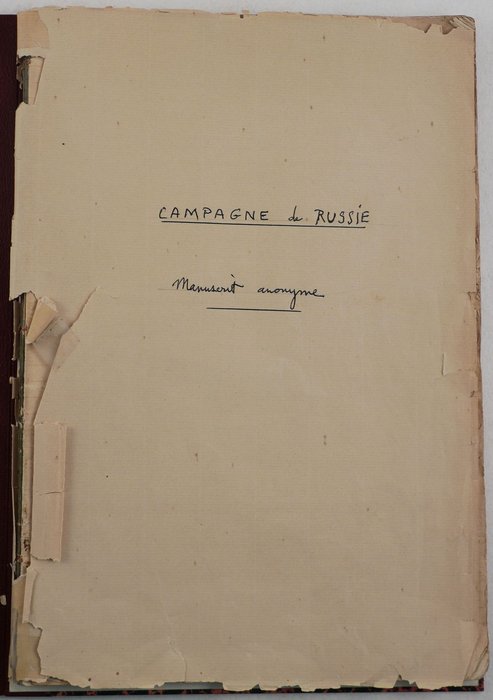
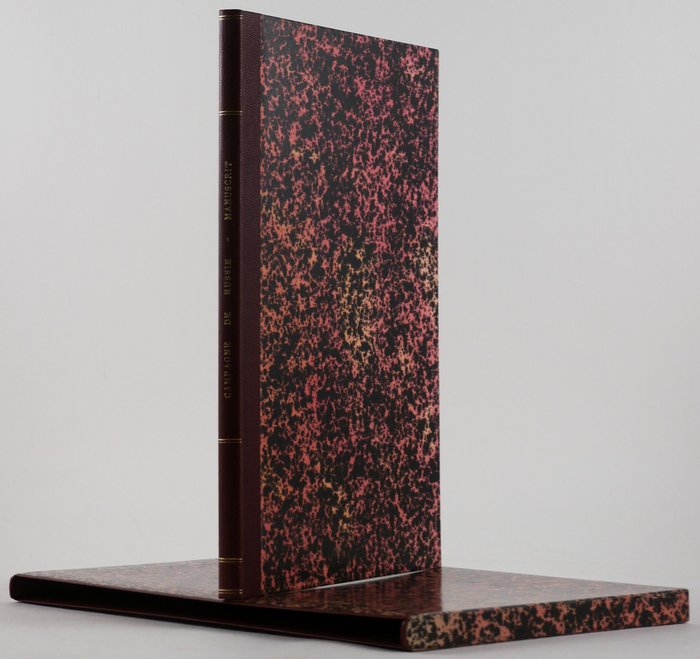
#MB4
Сa. 1820-1825
Folio (ca. 32,5x22 cm), 73, [2] stitched with a string. Brown ink on watermarked lined paper, text in French. Housed in a later laid paper cover with the manuscript title: “Campagne de Russie. Manuscrit anonyme,” inside a recent red quarter morocco folder with gilt lettered title on the spine and a marbled paper slipcase. Paper slightly age toned, with minor soiling and wear on the first and the last pages, but overall a very good manuscript.
Historically important period manuscript of Napoleon’s Invasion of Russia, or Russian Campaign of 1812. The narration begins on May 9, 1812 which marks the departure of the emperor to Königsberg, and ends on February 8, 1813 with the entrance of the Russians in Warsaw. Day by day the account details the main events of the campaign (crossing of the Niemen, capture of Smolensk on August 18, the Battle of Borodino on September 7, taking Moscow, etc.) and life in the French army during the advance towards Moscow. The author describes marches, battles, bivouacs, fire scenes and looting, hunger, heat, and lack of organization. There are also numerous notes that paint a portrait of Napoleon: "Napoleon was 43 years old and enjoyed robust health, he was little, fat, with high shoulders, short neck, big head, Greek profile and ponderous gait; his face was broad and pale, he had straight black hair, tawny gray eyes and thick eyebrows, his teeth were beautiful; his penetrating gaze, his motionless features, he was naturally taciturn, although only two passions painted on his face: anger, which made him momentarily lose reason, and the joy he expressed the contrary, by a very gracious smile; [...] At the beginning of a fight, the first cannon shots were giving to Napoleon an unbridled joy; then he remained impassive: generals, soldiers, fell dead before his eyes, nothing disturbed him." The narrator criticizes the emperor’s harsh judgment he wore on his defeated army, as he himself was "covered with furs, locked in a good car, always sleeping in a good bed and drinking Bordeaux wine with all his meals…"
The entry from the 7th of September described the Battle of Borodino "the bloodiest we have seen since the invention of gunpowder," which resulted in 70 000 killed on both sides, including 40 generals. Then came the invasion of Moscow "against all the rules of art,” where the governor general Fedor Rostopchin allegedly inspired the inhabitants to start the fire the following night. There is a note about frenzied looting during the fire, led by soldiers who had "braved death in the hope of owning Moscow’s wealth and abundance." On the 20th of September the army included 90,000 men and 20,000 wounded or sick, the supplies became scarce because "everything had burned or ravaged." Napoleon turned "from the offensive to the defensive and remained inactive in Moscow for 34 days in the midst of the ashes and disorder", and was forced to order the retreat which began on October 23, after he had decided to burn the Kremlin out of a “senseless revenge.”
Thus begins a detailed account of the retreat, with forced marches, starvation, cold, injuries and diseases, harassment by Russian troops, dropping of the wounded and weapons. The imperial army disintegrates, orders and rumors contradict, completing the disaster. Several pages are devoted to the crossing of the Berezina River, construction of bridges, Russian attacks and the tragic crossing on November 29. "There ended the destiny of this great army, which had made Europe tremble." On December 5 Napoleon left the army for Paris, leaving the command to Murat, who in turn passed it to Prince Eugene on January 16, 1813. The army, which after crossing the Berezina numbered only 8800 fighters, was still halved near Wilno on December 10, facing the army of Tsar Alexander, consisting of 100,000 men.
The manuscript ends with the overview of various bulletins of the campaign, the list of major French commanders, and a table showing the number of different divisions of Napoleon’s army: 647,158 men composed the imperial army in the beginning of the campaign (including Prussian and Austrian troops), and only 10,396 remained upon the retreat from Moscow. As indicated in the note at the end of the manuscript, it is according to the papers found in a carriage of Napoleon "we have feebly sketched the picture where the glory of French arms and misfortunes is so astonishing that posterity will be confused one day with the fabulous stories that have come down to us."


